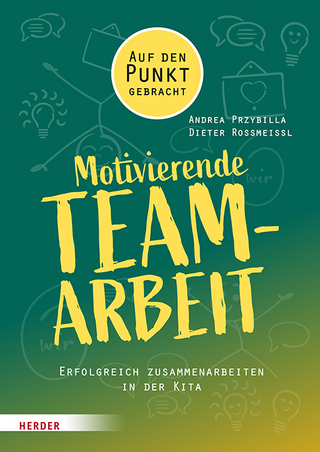
Advancing Student Engagement in Higher Education
Routledge (Verlag)
978-1-032-22250-9 (ISBN)
By problematising student engagement practice, this book explores how to strengthen policies, recognise the issues and create solutions to overcome barriers and tensions. It considers topics such as diversity, accessibility, representativeness, evidencing impact, data analytics, the campus estate and the impact of COVID-19. The contributors provide lessons learned and knowledge from the field to make practice with students more considered and robust for the challenges ahead in the post-pandemic university.
Moving beyond endorsing student engagement and offering best practice to critically reflect on and challenge our engagements with students in contemporary higher education, this book is ideal reading for all those developing education, course leaders and heads of academic departments, as well as anyone interested in advancing student engagement in their higher education setting.
Tom Lowe is a Senior Lecturer in Higher Education at the University of Portsmouth (UK) and the Chair of Researching, Advancing and Inspiring Student Engagement (RAISE).
1. Advancing student engagement in higher education: the need for reflection, critique and challenge 2. Researching and evaluating student engagement: A methodological critique of data gathering approaches 3. Challenges and tensions for Student Academic Engagement practices in contemporary UK Higher Education 4. There is not one student experience: Our learner journeys as individuals 5. Equality and diversity in our student engagement practice – Radical possibilities to reaching racial and religious equity in Higher Education 6. Authentic leadership for student engagement. 7. Students as consumers: A barrier for student engagement? 8. Accessibility to Student Engagement Opportunities: A Focus on ‘Hard to Reach’ Universities 9. How to engage students in your educational developments – a student leader’s view 10. Student evaluation of courses – cocreation of meaning through conversations: Insights from the student perspective 11. The problem with student engagement during Covid-19 12. Control, freedom and structure in student-staff partnerships 13. To what extent can we really make students partners in neoliberal universities? 14. Critical Challenges to Support Generation Z Learners 15. Student-Instructor Partnerships for Curricular Justice 16. Embracing student agentic engagement and enacting equity in higher education through co-creating learning and teaching 17. Defining, Delivering and Evaluating Student Engagement in a Professional Service in Higher Education: A Case Study of a Student Engagement Team in an Academic Library 18. University Estates: From Spaces to Places of Student Engagement 19. Learning Analytics in Higher Education: The ethics, the future, the students 20. Placing sport at the heart of the university community: a critical reflection on sports club membership and what it means for student engagement from a Bourdieusian perspective 21. Towards inclusive student partnership: challenges and opportunities for student engagement in the Australian context 22. Recognising the hidden impact of extra-curricular activity on student engagement and success 23. Widening the Aperture on College Students’ Sense of Belonging: A Critical Ecological Perspective 24: Valhalla and Nirvana: views of Arnstein’s Ladder of Citizen Participation in further and higher education 25. So what and what next? Concluding thoughts on advancing student engagement
| Erscheinungsdatum | 29.04.2023 |
|---|---|
| Reihe/Serie | SEDA Series |
| Zusatzinfo | 11 Line drawings, black and white; 2 Halftones, black and white; 13 Illustrations, black and white |
| Verlagsort | London |
| Sprache | englisch |
| Maße | 156 x 234 mm |
| Gewicht | 580 g |
| Themenwelt | Sozialwissenschaften ► Pädagogik ► Erwachsenenbildung |
| ISBN-10 | 1-032-22250-6 / 1032222506 |
| ISBN-13 | 978-1-032-22250-9 / 9781032222509 |
| Zustand | Neuware |
| Informationen gemäß Produktsicherheitsverordnung (GPSR) | |
| Haben Sie eine Frage zum Produkt? |
aus dem Bereich


